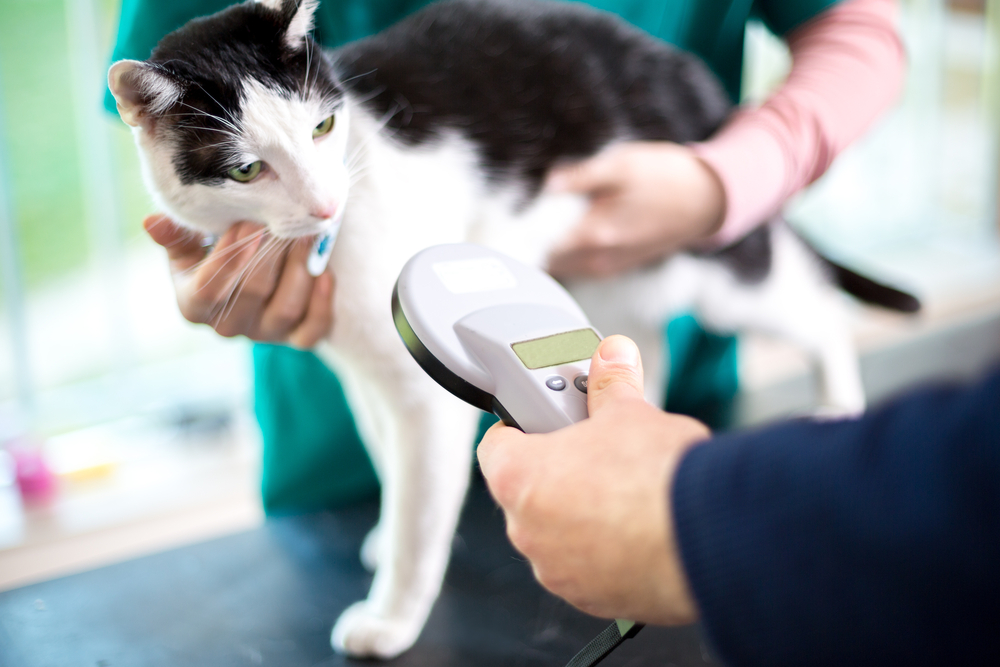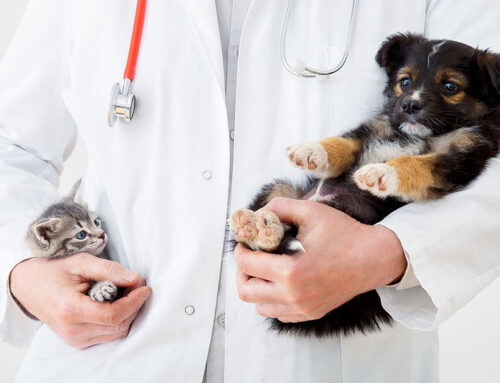Losing a pet is a heartbreaking experience no pet owner should have to endure. Fortunately, by having your pet microchipped, you can significantly improve the chances of reuniting with them should they get lost. Microchipping is a safe, effective, and permanent identification for dogs and cats, and our Veterinary Medical Center of Indian River County team can perform the simple procedure in minutes. Learn about this popular identification tool and why every pet deserves a microchip.
#1: Microchipping is a permanent way to identify your pet
A microchip is a tiny device, about the size of a rice grain, that a veterinarian implants just under a pet’s skin, typically between the shoulder blades. The chip contains a unique identification number linked to a database, with details about your pet and your contact information. Unlike identification tags on your pet’s collar, a microchip can’t be easily removed or lost. When a veterinary clinic or an animal shelter has your lost pet, the staff scans them for a microchip, which contains your contact information, and you and your pet can be reunited.
#2: The pet microchipping process is quick and painless
Your pet’s microchipping process is quick and nearly painless. After scanning your pet to verify that they have not been previously microchipped, our Veterinary Medical Center of Indian River County team injects the tiny chip, which is preloaded in a sterile applicator, into the loose skin between your four-legged friend’s shoulder blades, similar to administering a routine vaccination. No anesthesia is required, and the entire process takes minutes. After the chip has been implanted, our team scans the chip to ensure your pet’s unique identification number is detected. To link the chip number to your contact information, you need to register the microchip with the manufacturer’s database. Keeping your contact information current is also crucial.
#3: Microchipping your pet is safe
Microchips are completely safe for pets, having become standard practice. The chips are designed to be biocompatible and inert, which means the tiny devices won’t cause an allergic reaction or degrade over time. Microchip migration from the original implantation site is the most common adverse reaction. Once implanted, a microchip remains effective for your pet’s lifetime, needing no maintenance.
#4: Pet microchipping protects your privacy
If you have concerns about protecting your privacy when registering your contact information with the microchip database, rest assured your personal information is safe. Your pet’s microchip contains only a unique identification number. When scanned, this number corresponds to your contact information in the manufacturer’s database. The microchip manufacturer will only have the information that you decide to provide them, and the data will only be used to contact you after the microchip is scanned.
#5: A Microchip increases the likelihood of your pet’s return
The most compelling reason to microchip your pet is to increase the chance of being reunited should they become lost. Studies have shown that microchipped pets are far more likely to be returned to their owners. The American Veterinary Medical Association (AVMA) states that microchipped dogs are 2.5 times more likely and microchipped cats are 21 times more likely to be returned to their owners if lost than pets who do not have this tiny device.
#6: Pet microchipping is often required for international travel
A microchip is often required when traveling internationally with your pet. If you move or travel internationally, most countries and some U.S. states require that your pet have an International Standards Organization (ISO) standard microchip. In addition, if you travel to a country that has a high rabies risk, your pet must be microchipped to return to the United States.
#7: Microchips provide backup protection for your pet’s identification tags

While a microchip is a lost pet’s permanent identification, having the implanted device doesn’t replace a pet’s need for a collar and identification tags that provide immediate, visible identification. For the greatest assurance of being reunited with your lost pet, always provide them with multiple identification forms, and ensure you keep them up-to-date.
Microchipping is an essential part of responsible pet ownership and an extremely beneficial tool for ensuring a lost pet is returned to their home. To have your pet’s microchip implanted, or to ensure your contact information is up-to-date, schedule an appointment with our Veterinary Medical Center of Indian River County team.







Leave A Comment